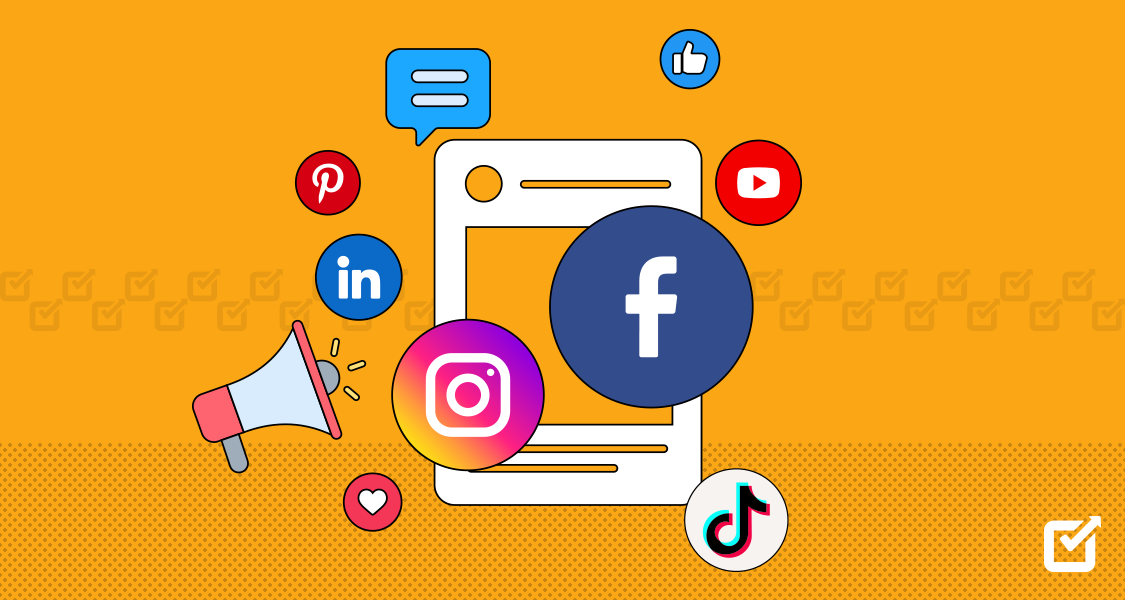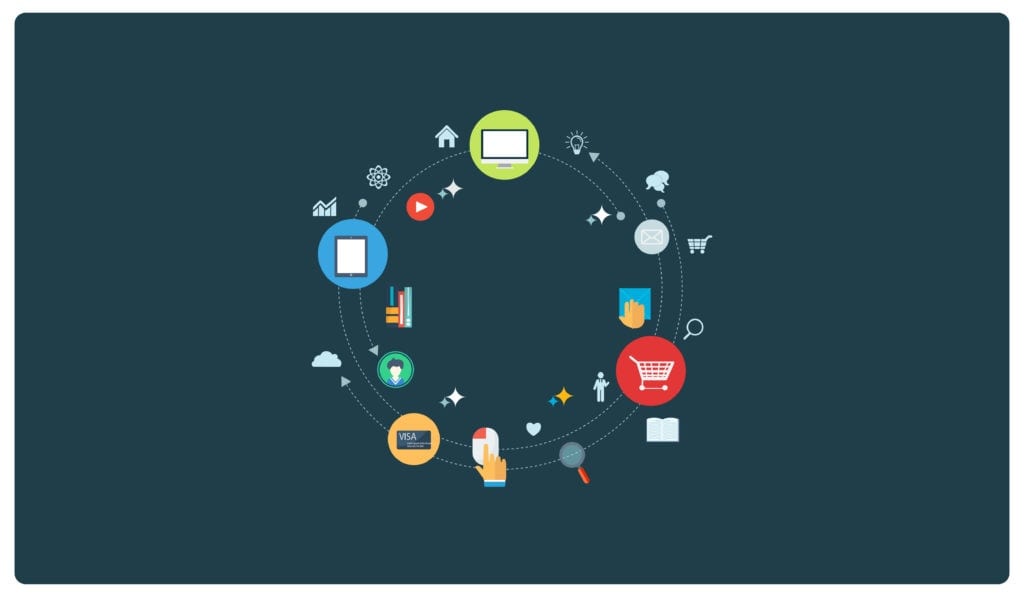In today’s digital age, platforms have become an integral part of our daily lives. From social media platforms like Facebook and Instagram to e-commerce platforms like Amazon and eBay, these digital ecosystems have revolutionized the way we interact, communicate, and do business. But what exactly is a platform? And why are they so important?
A platform can be defined as a digital infrastructure that enables two or more groups to interact with each other and exchange goods, services, or information. In essence, it acts as a middleman, connecting different parties and facilitating transactions. Platforms are not just limited to the digital world; they also exist in physical spaces, such as transportation platforms like Uber and Airbnb, which connect riders with drivers and travelers with hosts, respectively.
The rise of platforms has disrupted traditional business models and changed the way we consume and produce goods and services. In this article, we will explore how platforms have transformed various industries and their impact on society. We will also discuss the challenges and opportunities that come with the platform economy, as well as the future possibilities and implications for businesses and consumers.
The Evolution of Platforms
Platforms have been around for centuries, but they have evolved significantly with the advancement of technology and the internet. Before the digital era, traditional platforms were mostly physical, such as marketplaces, shopping malls, and transportation hubs. These platforms served as central points for buyers and sellers to exchange goods and services. However, with the advent of the internet, the concept of platforms has gone through a massive transformation.

Platforms have existed for many centuries, yet they have undergone substantial evolution with technological advancements and the rise of the internet
The first online platform was arguably eBay, founded in 1995, which allowed individuals to buy and sell goods through its website. It quickly became a success and paved the way for other e-commerce platforms like Amazon and Alibaba. Social media platforms like Facebook and Twitter emerged in the early 2000s, providing a place for people to connect and share information. With the introduction of smartphones and mobile apps, platforms became more accessible and widespread, leading to the rise of on-demand services like Uber and Airbnb.
Today, platforms have become an essential part of our lives, shaping the way we interact, work, and consume. According to research by Accenture, the platform economy is expected to reach $60 trillion by 2025, accounting for nearly 30% of global GDP. The growth of platforms is showing no signs of slowing down, and it’s essential to understand their impact on various industries and society as a whole.
The Types of Platforms
There are several types of platforms, each serving a different purpose and catering to various industries and users. Here are some of the most common types of platforms:
- E-commerce platforms: These platforms facilitate online transactions between buyers and sellers, such as Amazon, Alibaba, and eBay.
- Social media platforms: These digital ecosystems enable social interactions and content sharing, such as Facebook, Twitter, and Instagram.
- On-demand service platforms: These platforms connect users with individuals who provide services, such as Uber, Airbnb, and TaskRabbit.
- Software platforms: These platforms provide tools and resources for developers to create and distribute software, such as iOS and Android app stores.
- Marketplace platforms: These platforms bring together multiple sellers and buyers in one place, such as Etsy and Fiverr.
- Payment platforms: These platforms enable electronic financial transactions, such as PayPal and Venmo.
- Transportation platforms: These platforms connect riders with drivers, such as Uber, Lyft, and Grab.
With the rise of the platform economy, we can expect to see more diverse and specialized types of platforms in the future.
The Impact of Platforms on Industries and Businesses
Platforms have disrupted traditional business models and transformed entire industries. Here are some examples of how platforms have impacted various sectors:
- Retail: E-commerce platforms like Amazon have revolutionized the retail industry, providing consumers with a convenient and seamless shopping experience. Traditional brick-and-mortar retailers are struggling to compete with these online giants.
- Media: Social media platforms have changed the way we consume and produce content. They have given individuals a voice and enabled businesses to reach a global audience through targeted advertising.
- Transportation: Transportation platforms like Uber and Lyft have disrupted the traditional taxi industry and provided a more efficient and cost-effective mode of transportation for consumers.
- Hospitality: Airbnb has transformed the hospitality industry, giving travelers more options and affordable accommodation while posing a threat to traditional hotels.
- Finance: Payment platforms like PayPal and Venmo have made it easier and faster to make financial transactions, reducing the reliance on cash and traditional banking systems.
Platforms have also enabled new business models to emerge, such as the sharing economy, where individuals can rent out their assets or skills to others through platforms like Airbnb and TaskRabbit. These platforms have lowered barriers to entry for entrepreneurs and created new opportunities for income generation.
The Benefits and Challenges of the Platform Economy
The platform economy offers many benefits for both businesses and consumers, such as increased efficiency, convenience, and access to a global market. However, it also presents some challenges that need to be addressed. Here are some of the benefits and challenges of the platform economy:

The platform economy provides numerous advantages for businesses and consumers alike
Benefits
- Increased efficiency: Platforms connect buyers and sellers directly, eliminating the need for intermediaries and reducing transaction costs.
- Cost savings: Platforms can reduce the costs of production and distribution, making products and services more affordable for consumers.
- Global reach: With the internet, platforms can reach a global audience, enabling businesses to expand their customer base and increase sales.
- Convenience: Platforms provide users with a seamless and convenient experience, allowing them to access products and services with just a few clicks.
- Innovation: Platforms foster innovation by providing a space for new ideas and business models to emerge.
- Empowerment: Platforms give individuals more control over their assets and skills, enabling them to earn income on their terms.
Challenges
- Monopoly power: Some platforms have gained significant market power, giving them the ability to dictate terms and conditions to users and suppliers.
- Data privacy and security: Platforms collect a vast amount of user data, raising concerns about how it is used and protected.
- Digital divide: Not everyone has access to the internet or smartphones, which limits their participation in the platform economy.
- Regulatory challenges: With the rapid growth of platforms, governments are struggling to keep up with regulations and protect consumers from potential risks.
- Labor issues: The rise of on-demand service platforms has raised concerns about the treatment and rights of workers in the gig economy.
The Role of Platforms in Society
The impact of platforms goes beyond just businesses and industries; they also play a significant role in shaping society. Here are some ways in which platforms have influenced society:

Platforms not only influence businesses and industries but also have a substantial impact on shaping society as a whole
Democratizing Information and Communication
Platforms have made information and communication more accessible to people worldwide. Social media platforms like Facebook and Twitter have enabled individuals to connect and share information with others, breaking down geographical barriers. These platforms have also given a voice to marginalized groups and facilitated political activism and awareness.
E-commerce platforms have also democratized access to products and services, making them available to people in remote areas and developing countries. Even education has been transformed by platforms like Coursera and Udemy, providing people with affordable and convenient ways to learn new skills and gain knowledge.
Creating New Opportunities for Employment
Platforms have disrupted traditional job markets and created new opportunities for employment. The sharing economy, enabled by platforms like Airbnb and Uber, has allowed individuals to monetize their assets and skills. People can now rent out their spare rooms, offer their driving services, or complete tasks for others through these platforms.
Platforms have also enabled freelancers and independent workers to find work and connect with clients globally. With the rise of remote work, platforms like Upwork and Fiverr have become essential tools for businesses and individuals seeking specialized skills or services.
Impacting Social Interactions
Social media platforms have changed the way we interact and communicate with others. They have made it possible to connect with people we would never have met otherwise and maintain relationships across long distances. However, they have also been criticized for reducing face-to-face interactions and affecting mental health due to the pressure of constantly comparing ourselves to others on these platforms.
On the other hand, e-commerce platforms have reduced the need for physical interactions in the purchasing process, making it more convenient and efficient for consumers. This has significantly impacted traditional brick-and-mortar retailers, forcing them to adapt to this new reality.
The Future Possibilities of Platforms
The platform economy is continuously evolving, and we can expect to see more innovations and advancements in the future. Here are some possibilities of how platforms will shape our lives in the coming years:
The Rise of Platform Cooperatives
As mentioned earlier, some platforms have gained significant market power, leading to concerns about their dominance and control. In response, there has been a growing interest in the concept of platform cooperatives, which are owned and governed by their users. These platforms aim to provide an alternative to the current model, where profits are distributed among a few stakeholders, and users have little say in decision-making.
Platform cooperatives could potentially disrupt the current platform economy, providing a more democratic and equitable approach to the sharing of value and resources. Some examples of platform cooperatives include Stocksy United, an artist-owned stock photography platform, and FairBnB, a fair and sustainable alternative to Airbnb.
The Integration of Artificial Intelligence (AI)
AI has already started to permeate various industries, and it’s only a matter of time before it becomes an integral part of platforms. AI can help platforms personalize user experiences and improve efficiency by automating tasks and processes. For example, e-commerce platforms could use AI to analyze customer data and make personalized product recommendations.
However, the integration of AI also raises concerns about potential job displacement and data privacy. It will be crucial for companies to find a balance between using AI to enhance user experiences while still considering ethical implications.
Blockchain Technology in Platforms
Blockchain technology has the potential to revolutionize the way we transact and interact with platforms. Its decentralized and secure nature could address some of the challenges faced by traditional platforms, such as data privacy and security, transparency, and trust.
Platforms like OpenBazaar and Steemit, which are built on blockchain technology, have already gained popularity, offering alternatives to traditional e-commerce and social media platforms. We can expect to see more platforms utilizing blockchain technology in the future, providing more control and autonomy to users.
How Businesses Can Thrive in the Platform Economy
The rise of platforms has disrupted traditional business models, and it’s essential for companies to adapt to this new reality to stay competitive. Here are some ways businesses can thrive in the platform economy:
Embrace Digital Transformation
To survive in the platform economy, businesses need to embrace digital transformation. This means leveraging technology to improve operations, engage with customers, and create new business opportunities. Companies must invest in robust digital infrastructure and integrate online platforms into their business strategies to reach a wider audience and remain relevant.
Collaborate with Platforms
Businesses can also benefit from collaborating with existing platforms or creating their own. Partnering with established platforms can provide access to a larger customer base and reduce costs associated with setting up their own platform. Alternatively, businesses can create their own platforms to connect with customers directly and gather valuable data insights.
Focus on Customer Experience
In the platform economy, customer experience is crucial. Businesses must provide a seamless and personalized experience to attract and retain customers. Platforms can help businesses gather valuable data about their customers and tailor their products and services accordingly.
The Risks and Responsibilities of Participating in the Platform Economy
As the platform economy continues to grow, it’s essential for both businesses and consumers to understand the risks and responsibilities that come with participating in it.
For Businesses
- Data privacy and security: Companies need to ensure that their platforms are secure and protect user data from potential breaches.
- Maintaining trust: Businesses need to build and maintain trust with their users by being transparent and ethical in their practices.
- Regulatory compliance: With the increasing scrutiny on platforms, companies need to comply with regulations and be accountable for any potential risks or harm caused by their platforms.
- Managing power: As platforms gain more market power, businesses need to consider how their actions may impact other stakeholders and society as a whole.
For Consumers
- Data privacy and security: Users must be aware of how their data is being collected and used by platforms and take measures to protect themselves.
- Discrimination: There have been cases where algorithms used by platforms have shown bias towards certain groups, which can perpetuate discrimination.
- Digital addiction: With the constant use of platforms, users may become addicted to their devices and suffer from mental health issues. It’s essential to find a balance and prioritize offline interactions.
- Understanding terms and conditions: Consumers must read and understand the terms and conditions before using a platform to avoid any potential risks or legal issues.
The Dark Side of Platforms
While platforms have brought numerous benefits and possibilities, there is a dark side to this digital ecosystem that cannot be ignored. Here are some of the negative impacts of platforms on society:
Monopolies and Inequality
Platforms can lead to monopolies in certain industries, where one platform dominates the market, making it challenging for other players to enter. This can lead to a lack of competition and result in higher prices and reduced quality for consumers. Moreover, platforms have also contributed to income inequality, with the concentration of wealth in the hands of a few platform owners.
Labor Exploitation
The rise of the gig economy has led to concerns about the exploitation of workers by platforms. As independent contractors, these workers do not receive benefits like health insurance, sick leave, or retirement plans, and may even earn below minimum wage. The lack of job security and bargaining power makes them vulnerable to exploitation.
Fake News and Misinformation
Social media platforms have been criticized for spreading fake news and misinformation, which can have serious consequences on society. With the ability to reach millions of people, these platforms have a responsibility to monitor and fact-check the content shared on their websites.
Conclusion
The rise of platforms has undoubtedly transformed the way we live and do business. These digital ecosystems have disrupted traditional models and created new possibilities and challenges. While there is no denying the immense potential of platforms, it’s essential to understand their impact on society and address any risks and responsibilities that come with participating in the platform economy. As technology continues to advance, we can expect to see more innovations and changes in the platform landscape, shaping the future of business and society.



